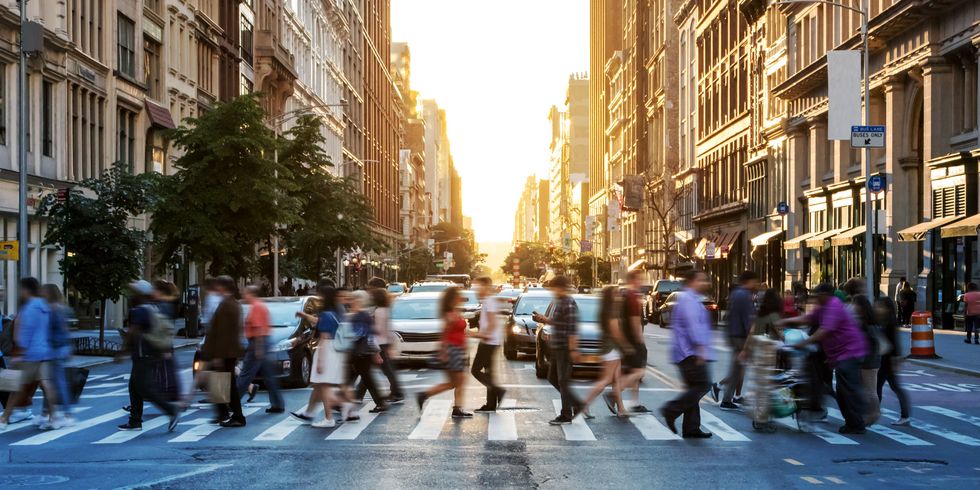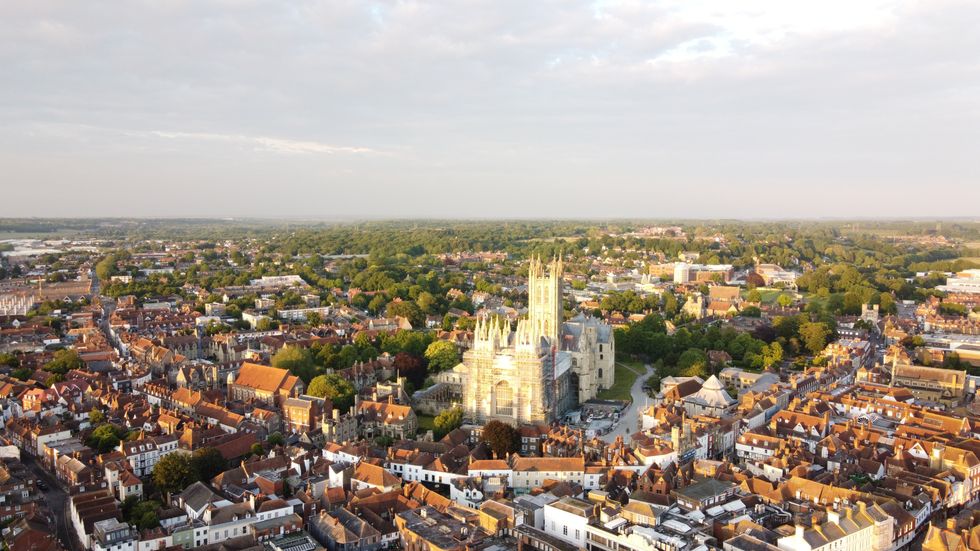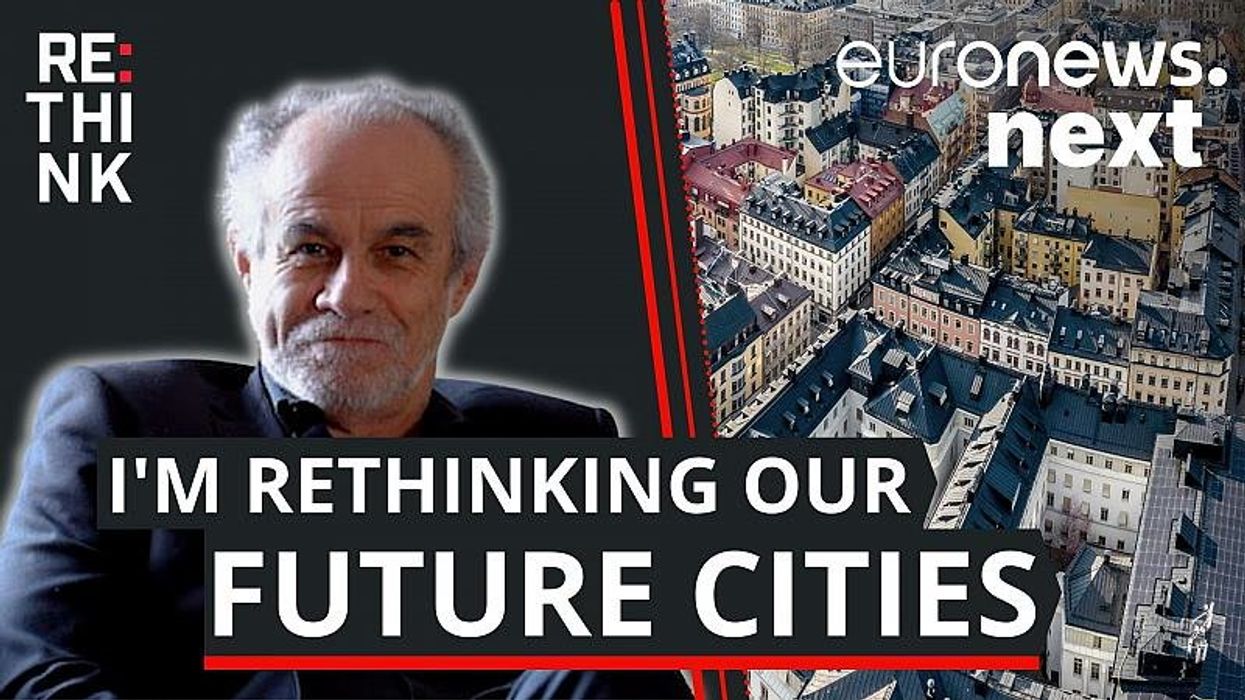Harry Fletcher
Feb 14, 2023
15-minute city: Could reshaping where we live be the key to a …
content.jwplatform.com
Conspiracy theorists move from one thing to another at a pretty alarming rate, and the latest concept getting their backs up is the notion of “15-minute cities”.
The idea is pretty simple. One of the biggest things to emerge in the world of urban planning after the pandemic is the 15-minute neighbourhood, which proposes that everything a person needs to live in a town or city can be found within a short walk from a person’s home.
This includes things like shops, offices, schools, medical centres, as well as places to spend free time like restaurants and parks.
The idea was first developed by the French urbanist Carlos Moreno and put into practice by Paris mayor Anne Hidalgo, and they’ve become a part of life in certain cities across Europe.
Sign up for our free Indy100 weekly newsletter
In essence, the principle is based around reducing the need for driving long distances, therefore reducing the number of car journeys and reducing the strain on the environment.
However, the concept has been heavily criticised by many, with some attacking a perceived attack on civil liberties and government control.

A growing trend online has seen conspiracy theorists and social media users frame the concept as a surveillance state nightmare, with people’s free movement being put at risk.
There’s already been a great deal of misinformation spread online on the subject – some have even falsely claimed that people would require “permits” to leave their own homes.
Canterbury, in the UK, is one of the cities looking to use the notion of 15-minute cities to make big changes over the coming years – and it’s been attracting criticism.
The plans for Canterbury would see the city split into five zones. Under the current proposals, drivers wouldn’t be able to cross over directly from zone to zone. Instead, motorists would only be allowed to enter each one from a ring road around the city.
Ben Fitter-Harding, who is the Canterbury City Council leader, said it could take until 2040 to develop the infrastructure needed to implement the plans.
By then, he said he hoped ”there'd be no reason to jump in your car for the majority of journeys" with improved bus services, footpaths and hire bikes… The easiest thing to do would be walk, cycle or jump on a hopper bus.”
Howard Cox from the campaign group FairFuelUK, though, called the plans "clueless" and said it was "a virtue-signalling approach to controlling congestion".
"It's a freedom-of-choice issue. Why should people be forced into situations if they do not want to cycle?" he said. "Again, a local authority is using this idea of reducing congestion as a guise for taking money from our pockets. In Canterbury, there already is a ring road, and if there is a blockage you go out to the ring road and you avoid the blockage."

One of the most contentious points within the Canterbury proposals is the attempt to reduce congestion by closing traffic on roads in the city centre and applying “traffic filters” – license-plate readers that will fine motorists. It wouldn’t be for everyone, as taxis, bikes and delivery vehicles could still use them.
Prominent figures have commented on the growing number of proposals like this one across the world. Controversial commentator Jordan Peterson retweeted a post containing maps of 15 minute-city plans and the caption “It’s already happening…”
He wrote: “The idea that neighbourhoods should be walkable is lovely. The idea that idiot tyrannical bureaucrats can decide by fiat where you're ‘allowed’ to drive is perhaps the worst imaginable perversion of that idea--and, make no mistake, it's part of a well-documented plan.”
The former leader of UKIP, Nigel Farage, labelled the Canterbury plans a “climate lockdown” and a sitting MP also criticised the general notion of 15-minute city plans in the Commons.
Earlier this month, Nick Fletcher MP demanded a “debate on the international socialist concept of so-called 15-minute cities and 20-minute neighbourhoods… Ultra-low emissions zones in their present form do untold economic damage to any city. The second step after these zones will take away personal freedoms as well.”
Regardless of how people feel about the plans, it is easy to see how the idea can divide opinion – especially given the amount of misinformation out there on just about every subject at the moment.
Having everything on our doorsteps sounds pretty idyllic and changes unquestionably need to be made to tackle climate change. It’s also true, though, that people do not like being told what to do when it comes to driving. Changes to the roads which negatively impact drivers will always be met with derision, and while people will certainly not be prevented from travelling from one place to another, the plans like those proposed in Canterbury are designed to make it less convenient to get from A to B in cities for normal motorists.
That is, after all, the entire point. It is meant to act as a deterrent to encourage people to walk, cycle or take public transport in a bid to tackle emissions in towns and cities.
A change needs to come from somewhere, and the solutions won’t always be popular. Conspiracy theorists and critics might be getting their 15-minutes of fame framing the proposals as the stuff of authoritarian climate lockdown, but this concept could be around for the long haul as city planners look to ease congestion and reduce carbon footprints.
Have your say in our news democracy. Click the upvote icon at the top of the page to help raise this article through the indy100 rankings.
Top 100
The Conversation (0)














